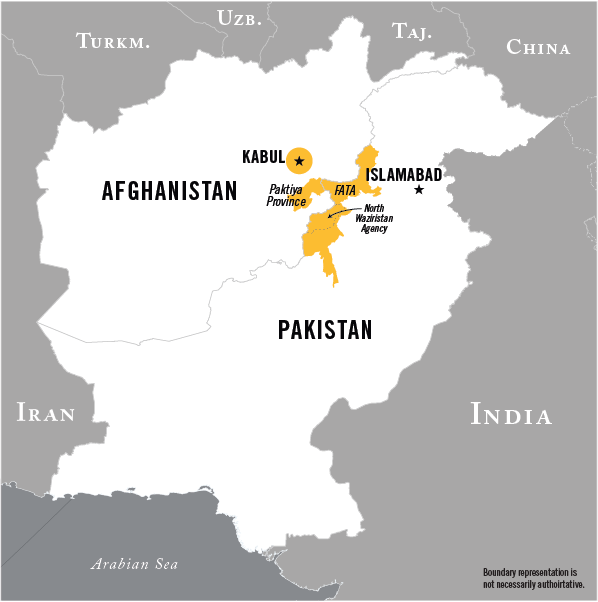TERRORIST GROUPS

BACKGROUND
The Haqqani Network is a Sunni Islamist militant organization founded by Jalaluddin Haqqani, who emerged as a top Afghan warlord and insurgent commander during the anti-Soviet war; he was a member of the Hezb-e Islami faction led by renowned mujahedin commander Younis Khalis. Jalaluddin later allied with the Afghan Taliban as that group’s Minister of Tribal and Border Affairs when the Taliban held power in Afghanistan during the mid-to-late 1990s. He was a known associate of Usama Bin Ladin and was recognized as one of Bin Ladin’s closest mentors during the al-Qa‘ida founder’s formative years in the 1980s Afghan war. Sirajuddin Haqqani, Jalaluddin’s son, currently leads the day-to-day activities of the group, along with several of his closest relatives. Sirajuddin in August 2015 was named as a deputy to newly appointed Taliban leader Mullah Akhtar Mohammed Mansur—cementing the alliance between the Haqqanis and the Taliban.

The Haqqani Network is primarily based in North Waziristan, Pakistan, and conducts cross-border operations into eastern Afghanistan and Kabul. The group is primarily composed of members of the Zadran tribe. The Haqqanis are considered the most lethal and sophisticated insurgent group targeting US, Coalition, and Afghan forces in Afghanistan; they typically conduct coordinated small-arms assaults coupled with rocket attacks, IEDs, suicide attacks, and attacks using bomb-laden vehicles.
The Haqqani Network is responsible for some of the highest-profile attacks of the Afghan war, including the June 2011 assault on the Kabul Intercontinental Hotel, conducted jointly with the Afghan Taliban, and two major suicide bombings—in 2008 and 2009—against the Indian Embassy in Kabul. In September 2011, the Haqqanis participated in a day-long assault against major targets in Kabul, including the US Embassy, International Security Assistance Force (ISAF) headquarters, the Afghan Presidential Palace, and the Afghan National Directorate of Security headquarters. More recently, in October 2013, Afghan security forces intercepted a truck bomb deployed by the Haqqanis against Forward Operating Base Goode in Paktiya Province. The device, which did not detonate, contained some 61,500 pounds of explosives and was the largest truck bomb ever built. The group is also involved in a number of criminal activities in Afghanistan and Pakistan, including extortion, kidnapping for ransom, and smuggling.
The US Government in 2012 designated the Haqqani Network as a Foreign Terrorist Organization because of its involvement in the Afghan insurgency, attacks on US military and civilian personnel and Western interests in Afghanistan, and because of its ties to the Taliban and al-Qa‘ida. In addition to designating the group, key members have also been individually designated. Haqqani leaders Saidullah Jan, Yahya Haqqani, and Muhammad Omar Zadran, as well as suicide operations chief Qari Abdul Ra‘uf (also known as Qari Zakir), and Ibrahim Haqqani, remain either designated for financial sanctions or are on US most-wanted lists.



